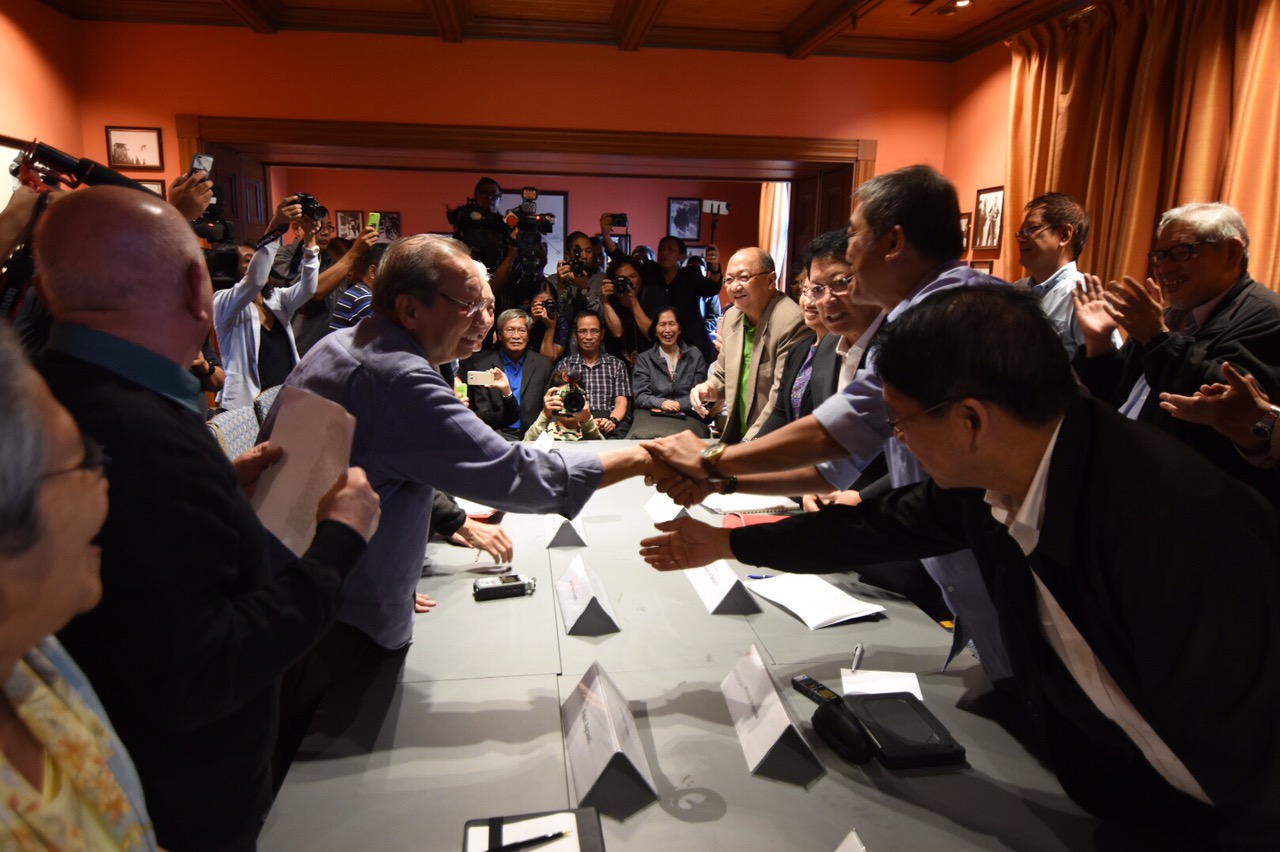![]()
For those familiar with Philippine President Rodrigo Duterte, his string of insults directed at the United States – from the (mis)reported obscenity directed at outgoing US President Barack Obama last month which led to the cancellation of their bilateral meeting in Laos to a threat to end US-Philippine military exercises this week – has hardly been a surprise.
While the tough-talking mayor of Davao City may have hit the ground running on some of his national priorities, leaving insulted institutions and countries in his wake, he is still very much finding his footing internationally.
What is less clear, though, is what this will ultimately mean for the US-Philippine alliance, which will face another transition when a new US administration takes office in January 2017. If both sides are serious about moving beyond the rough start we have witnessed in the past few months and want to both seize the opportunities, as well as navigate the challenges in the relationship, they each need to keep in mind several realities that will help them recalibrate bilateral ties.
The real challenge
The attention to any one of Duterte’s comments directed at Washington or his rhetoric more generally misses the point. His personal distrust of the United States is deep-seated, and his rhetoric, offensive though it may be, taps into a broader, often understated sentiment within a segment of the Philippine population that has long been suspicious of the US role in the country.
Furthermore, though headlines like the cancellation of the Duterte-Obama meeting or the Philippine president’s call for the withdrawal of US Special Forces continue to serve as distractions, officials from both sides emphasize that other high-level visits, as well as working level meetings that often do not make as many waves are nonetheless continuing to run, with some of them actually progressing smoothly.
US Secretary of State John Kerry’s July meeting with Duterte went quite well, while Philippine Foreign Secretary Perfecto Yasay’s visit to the US earlier this month provided an early opportunity to address lingering concerns in Washington about the direction of the alliance.
The longer-term question, however, is how the US-Philippine alliance will fare under new leaderships in Washington and Manila over the next few years. Under Duterte’s predecessor Benigno Aquino III, ties between the two allies had reached a level not seen in decades, with the establishment of new senior-level dialogues, the signing of a new defense pact, and Manila’s interest in the Trans-Pacific Partnership (TPP) being just some of the highlights.
Indeed, relations were so warm that irrespective of which candidate had triumphed in the 2016 Philippine elections, officials from both sides had braced themselves for a more complicated period for the alliance. “Really, we’d be happy if we can hold what we have,” one US official told me in a candid conversation shortly after the US-Philippine Bilateral Strategic Dialogue in March, when Duterte was still far behind his rivals in the race for the presidency.
Thus far, the trajectory of US-Philippine relations under Duterte has made even that reasonable expectation seem idealistic. From his softer line on the South China Sea to his hard-hitting insults at the outgoing US ambassador and Washington more generally; from rights concerns in his war on drugs to his wrong-headed views about external security (including questioning existing purchases like fighter jets and threatening to end US military exercises), the alliance has gotten a rather rude awakening, with little indication of how much worse it could get.
It is certainly true that the relationship has been through its share of ups and downs historically. But a familiarity with that checkered past should not lead to complacency about the future, and both sides need to work hard at recalibrating the US-Philippine alliance for a new era.
Duterte’s rethink
The initiative must begin with Duterte and those advising him on foreign policy.
Those who know the President well say his views on the United States are the product of both broader beliefs – including his preference for independence and distrust of external interference – as well as specific concerns about US transgressions in the past from the colonial period up to his time as mayor of Davao City.
Apart from his own ideological inclinations, they say Duterte also does genuinely believe that pursuing his so-called “independent foreign policy” – which would mean more distance from Washington relative to Aquino and perhaps closer ties with Beijing – would be a pragmatic vision in Manila’s interest, and that he has a strong mandate to pursue this.
Though some are quick to dismiss Duterte’s hang-ups about past US actions, they are not without substance. For instance, too few Americans remember what some call the Bud Dajo massacre that took place near Jolo’s Bud Dajo volcano in 1906, which Duterte referenced during his oft-cited, offbeat intervention at the East Asia Summit earlier this month. During the incident, US troops, on the orders of Major General Leonard Wood, killed over 600 Moros – including unarmed women and children – sparking outcry not just among the Moros, but even anti-imperialists in the United States such as Mark Twain.
And when Yasay, the foreign secretary, told the Center for Strategic and International Studies that the Philippines was no longer America’s “little brown brother,” few Americans in the audience seemed to recognize that he was referring to the paternalistic term coined by former President William Howard Taft who had served as the first Governor-General of the Philippines.
Besides, contrary to the knee-jerk reaction some might have, charting a more independent foreign policy is not necessarily all that bad for the US-Philippine alliance.
All Southeast Asian countries are trying to balance their alignments between the United States and China (and other states too) to some degree to maximize benefits and minimize risks, and the Philippines has not been an exception to this rule.
Indeed, Duterte is just the latest in a line of Philippine leaders who have tried to do so with varying degrees of success. Gloria Macapagal Arroyo initially and explicitly sought to deepen the Philippines’ hedging position vis-à-vis the US and China but ultimately ended up going too far in her engagement with Beijing, while the Aquino era saw Manila move closer to Washington in large part due to China’s growing assertiveness in the South China Sea. Duterte now appears to be trying to move the dial slightly back towards Beijing, a shift that was both ultimately bound to happen and far from assured.
That said, assuming Duterte does end up charting this independent foreign policy, he also needs to acknowledge and factor in two key realities.
First, irrespective of his views on past US actions and his future foreign policy vision, at present the reality is that the Philippines is still heavily dependent on the United States. This is most clearly seen in the security realm, where, through capacity-building programs, engagements and the very exercises that Duterte called into question, Washington and its network of regional allies and partners have been critical in helping Manila address its internal and external security challenges. But even on the economic side, the US is Manila’s top foreign investor and third largest trading partner, which makes it central to the realization of Duterte’s economic goals laid out in his 10-point economic plan back in July.
Indeed, if Duterte were truly pragmatic, given this reality, he would set aside his personal views of the United States and further his country’s interest by building on the US-Philippine alliance and then use that to secure better ties with other nations, including China from a position of strength. For inspiration, Duterte need only look to his predecessor Fidel Ramos, a close friend whom he has tapped as special envoy in Manila’s ongoing rapprochement with Beijing. Even as Ramos sought to engage China following the Mischief Reef incident in 1994, he also simultaneously worked to secure a Visiting Forces Agreement (VFA) with the United States, recognizing that American hard power was necessary to at least slow down the pace of China’s "creeping assertiveness" in the South China Sea.
Second, even if Duterte advances a domestic-first foreign policy and tries to enlist Washington’s help to achieve Philippine goals at home and abroad, he must realize that US-Philippine relations is a two-way street. US support is not a constant to be always assumed but a variable that is periodically assessed with each new administration. And the reality is that the degree to which a US administration can help Manila achieve its internal priorities is contingent on both the amount the Philippines is willing to contribute bilaterally, regionally, and globally, as well as the extent of domestic political support in Washington.
On the former point, as the United States has more comprehensively engaged a growing list of countries in the Asia-Pacific under its “rebalance” and asked this network of friends to "do more." This has upped the ante for Washington’s older allies and partners in terms of their regional and global contributions.
Under the Aquino years, the Philippines was clearly pulling its own weight in the alliance to a level not seen in decades. This included not just focusing more on external defense within its own military modernization program and agreeing to the Enhanced Defense Cooperation Agreement (EDCA), but also supporting the US rules-based order through various means, from pushing back against China in the South China Sea to expressing interest in the Trans-Pacific Partnership (TPP).
If Duterte were truly pragmatic, he would set aside his personal views of the United States and further his country’s interest by building on the US-Philippine alliance and then use that to secure better ties with other nations, including China from a position of strength.
Duterte has already said he will adhere to existing security agreements like EDCA, and on the economic side, negotiations on outstanding issues in the alliance like the General Systems of Preferences (GSP) program are also continuing. But the standard by which Manila will be judged will be much higher than just preserving the status quo on these items. If Manila now backtracks and appears to be of little value in advancing US regional interests relatively speaking, then it risks moving down the hierarchy of Washington’s allies and partners under an incoming administration.
In this sense, some of Duterte’s words and actions since coming to power – including skipping certain ASEAN meetings, downplaying the South China Sea issue, and minimizing human rights concerns – have understandably raised eyebrows in Washington, even though his advisers, diplomats, policymakers, and in some cases Duterte himself, have sought to subsequently explain them away.
US assistance in the advancement of Philippine interests also partly depends on the domestic political support in Washington, not just within the White House and its National Security Council (NSC) but also other actors like the US State Department and the US Congress. Irrespective of the merits of Duterte’s arguments, anti-US rhetoric and human rights concerns make it more difficult for various actors in US policy circles, as well as backers of the alliance to call for more support for the very goals the Philippine president is trying to advance.
In particular, with the US Congress now back in session following its summer recess, there is a risk that such comments could put pressure on the administration to take punitive actions against Manila, which could result in funding cuts and a downward spiral of mutual hostility. There are already early warning signs, with US Senator Patrick Leahy saying on Monday that “additional conditions” may have to be attached to American aid to the Philippines, should extrajudicial killings continue. If Duterte wants the US to understand the domestic context under which he is operating, he must also demonstrate the same empathy for his interlocutors in Washington.
Washington’s balance
Just as Duterte must find the balance between achieving his ideal of a more independent foreign policy and the realities of Philippine dependence and US support, Washington, too, must find its own balance. In its case, the balance is between addressing its legitimate concerns about the future direction of the US-Philippine alliance while also keeping in mind the realities that inform the Duterte administration’s approach to the United States and shape what might be possible for both Manila and Washington to accomplish during his tenure.
If Duterte is entitled to raise old grievances about America’s half century-long colonial legacy and Philippine overdependence on its ally thereafter, then Washington is also right to express its anxieties about the relationship’s future given its turbulent past.
For longtime observers of the US-Philippine alliance, friction over the extrajudicial killings in Duterte’s war on drugs and worries about a return to a focus on internal security in Philippine military modernization strike raw nerves that have imperiled bilateral cooperation before. And suffice it to say that a return to the intermittent debates about human rights during the era of Ferdinand Marcos or burden-sharing that had only begun to subside during the Aquino period would be far from ideal for both sides.
Moreover, there is also a sense that the stakes are much higher now than they were in the past. From a US policymaker’s perspective, Asia is a region of both growing opportunities as well as rising challenges – from a more confident and assertive China to an increasingly troubled ASEAN, all amid a dizzying array of other global problems that Washington also has to contend with including the Islamic State, conflicts in the Middle East, a resurgent Russia, frail Europe, and a still weak global economy.
In such an environment, the recent gains made by Washington and Manila over the past few years have significant value not only for the alliance, but the region as well, and their reversal would similarly be viewed from that broader perspective.
To take but just one example, I have emphasized that maritime security cooperation between the US and the Philippines has a vital regional component as well, since the Philippines’ National Coast Watch Center is a key initial hub for Washington help build a networked, common operating picture in the South China Sea out onto the rest of the region through its Southeast Asia Maritime Security Initiative (MSI).
Given this, it is reasonable that Washington would draw red lines to ensure that progress in certain areas, such as on the EDCA, would not be held up as Manila engages China, which has been less than thrilled about the pace of US-Philippine security cooperation over the past few years.
That said, legitimate concerns about the future state of the US-Philippine alliance must be accompanied by the acknowledgment of two key realities on Washington’s part.
First, it is still early days. Duterte’s initial position on the US-Philippine alliance is an evolving one that is contingent on both popularity at home as well as shifting alignments with other states abroad, both of which need to be appreciated, but could also end up changing much faster than his administration perceives. That means that US policymakers will need to react proportionally when needed, but give the administration time to find its feet in the event that it eventually shifts its approach towards the United States.
It is worth recalling here that it is not uncommon for Philippine (or US) presidents to take a while to settle into their new position. Aquino took about a year, and Duterte could either take longer or shorter since things are much more unpredictable in his case. Domestically, since he is an outsider challenging the established elites on so many fronts simultaneously, he may very well alienate elements of certain bureaucracies or institutions such as the military or legislature, leading him to lose political capital and recalibrate (as it is, his comments on the United States have already alienated some domestically in the foreign policy and defense establishments).
And internationally, his bold reset with China may end up sinking or sailing precariously amid continued uncertainty in the South China Sea, leading him to ultimately view keeping US-Philippine relations afloat as a key strategic objective. It is too early to tell whether this is, in fact, the case given that we have incoming new administrations on both sides, as well as fresh envoys from the two countries. But what is clear is that for all his rhetoric, Duterte knows – and, at times, has admitted rather grudgingly – that close cooperation with the United States in areas like maritime security is vital for Manila, even as it boosts ties with Beijing.
Neither Hillary Clinton nor Donald Trump share Obama’s cool temperament on matters foreign and domestic, and are likely to react more harshly in the face of any future transgressions by Duterte.
The Obama administration, to its credit, seems to have internalized this need for calm and patience thus far, acknowledging the domestic significance of the war on drugs while honing in on the rights concerns more specifically, or giving Duterte the breathing room necessary to repair Manila’s strained ties with Beijing. But officials also admit that this is becoming harder to do. And beyond this US president, the next administration might not find this task to be that easy to accomplish in practice.
For one, neither Hillary Clinton nor Donald Trump share Obama’s cool temperament on matters foreign and domestic, and are likely to react more harshly in the face of any future transgressions by Duterte. Furthermore, beyond personalities, acknowledging this reality in the face of the Philippines’ ongoing transition – and probably a few more Duterte outbursts – will require not just patience on the part of the executive branch, but perhaps also restraining an angry US. Congress that sometimes has a mind of its own, and battling it out with other bureaucracies that may not be as tolerant of perceived transgressions against the US ideals or international principles.
The second reality is much harder to acknowledge: that under the Duterte administration, the US-Philippine alliance, while still seeing some progress, may never ever reach a level anywhere close to the strategic alignment seen under Aquino. Given this possibility, and whatever its probability, Washington should not just hope and wait for Duterte to come around, but also simultaneously prepare for a more sobering outlook for the alliance, be it selective engagement on a number of areas or perhaps even minimal quiet cooperation amid public hostility. Doing so would not be an admission of potential defeat but an acknowledgment of possible – even likely – realities.
The former scenario of selective engagement would see Washington and Manila continue to have key differences but nonetheless cooperate on specific areas where US and Philippine interests intersect, especially ones which are aligned with Duterte’s own domestic goals like counterterrorism and law enforcement (though even these areas admittedly have not been free of disagreement).
Indonesia, Malaysia
This would be along the lines of what we have seen thus far in US-Indonesia relations under President Joko “Jokowi” Widodo, another Southeast Asian populist, where talk of a “strategic partnership” has vastly outpaced the reality of collaboration in specific areas such as maritime security and illegal fishing.
A more difficult scenario might be a repeat of one we saw in US-Malaysia relations under Mahathir Mohammad in the 1980s and 1990s (or perhaps one we are seeing in US-Thai relations under the current junta) where there would be much fiercer public disagreements over a range of issues – from human rights to regional leadership – even as some security cooperation continues under the radar.
Irrespective of which scenario actually materializes, Washington’s approach ought to be the same. It should first draw red lines to establish a clear floor for the alliance and preserve as much of the cooperation that has already been achieved, and then shape the contours of a reasonable ceiling by being direct about how it can contribute to the Philippines and its domestic priorities and what it expects in return.
If Duterte ends up wanting nothing more than a transactional relationship with the United States, then Washington must be prepared to bargain hard to ensure that it secures the best possible outcome for American interests.
Alliances and partnerships sometimes go through periods of change under new leaderships, and the US-Philippine alliance is no different. Under the new Duterte administration as well as a fresh US administration next year, this process will take its course, with its own share of twists and turns.
But given the rough start we have witnessed thus far, the two sides should think carefully and creatively about how to manage an alliance that is important not only for them both, but increasingly the region as well.
For all the alarm in the chattering classes following Duterte’s threat to “cross the Rubicon” with the United States, what is needed in the US-Philippine alliance is ultimately more of a recalibration, rather than a reset or a rethink, and one that both sides are fully capable of undertaking if their leaders have the willingness to do so. – Rappler.com
Prashanth Parameswaran is Associate Editor at The Diplomat Magazine and PhD candidate at the Fletcher School of Law and Diplomacy at Tufts University. He writes, researches and consults extensively on Southeast Asia, Asian security issues and U.S. foreign policy in the Asia-Pacific. Follow him on Twitter @TheAsianist.
![]()



 Kung hahanapin ngayon sa mga bagong diksiyonaryong Filipino ang salitang
Kung hahanapin ngayon sa mga bagong diksiyonaryong Filipino ang salitang 
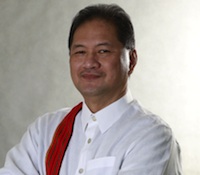 There is a season for everything, even for a woman I had described earlier as
There is a season for everything, even for a woman I had described earlier as 


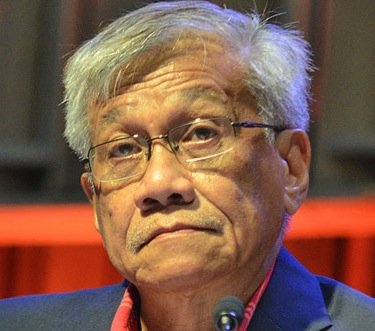


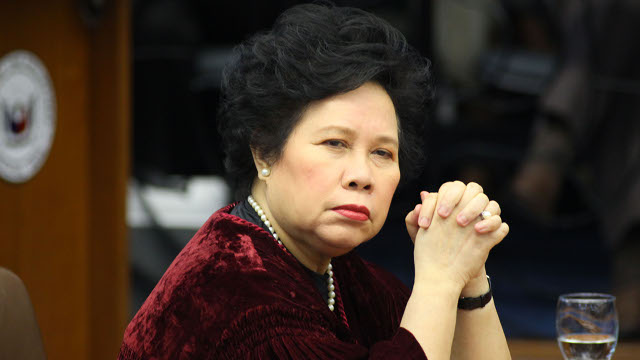
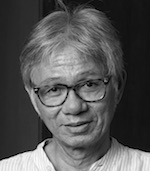 How far back through history need we go in our search for clues to what may be wrong with us? And how much fault can be found there that will convince us that we are ourselves blameless?
How far back through history need we go in our search for clues to what may be wrong with us? And how much fault can be found there that will convince us that we are ourselves blameless?
 There seems to be some confusion about the economic impact of the peso’s recent depreciation against the dollar. Depending on who you listen to, the peso’s 7-year low would seem to be disastrous at worst or beneficial at best.
There seems to be some confusion about the economic impact of the peso’s recent depreciation against the dollar. Depending on who you listen to, the peso’s 7-year low would seem to be disastrous at worst or beneficial at best.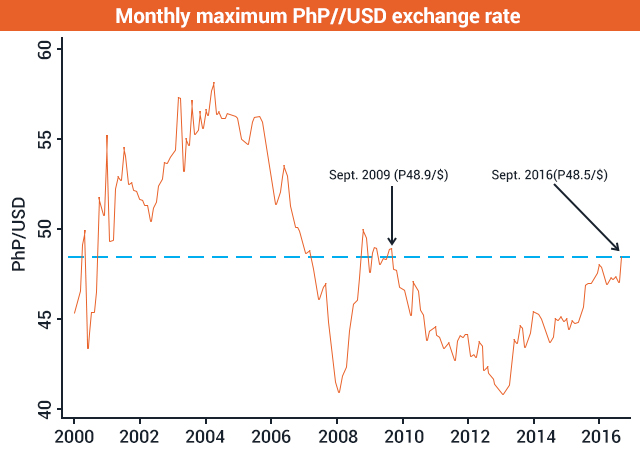






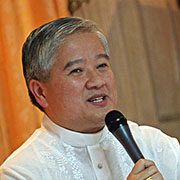
 Imagine this:
Imagine this:
 As expected, business groups such as the Employers Confederation of the Philippines and individual business leaders are claiming that the epidemic of contractualization plaguing the country is actually good for workers and for Filipinos.
As expected, business groups such as the Employers Confederation of the Philippines and individual business leaders are claiming that the epidemic of contractualization plaguing the country is actually good for workers and for Filipinos.
 I was the woman in the sex video.
I was the woman in the sex video.

.jpg) Colombian President Juan Manuel Santos and rebel leader Timochenko recently inked a
Colombian President Juan Manuel Santos and rebel leader Timochenko recently inked a 